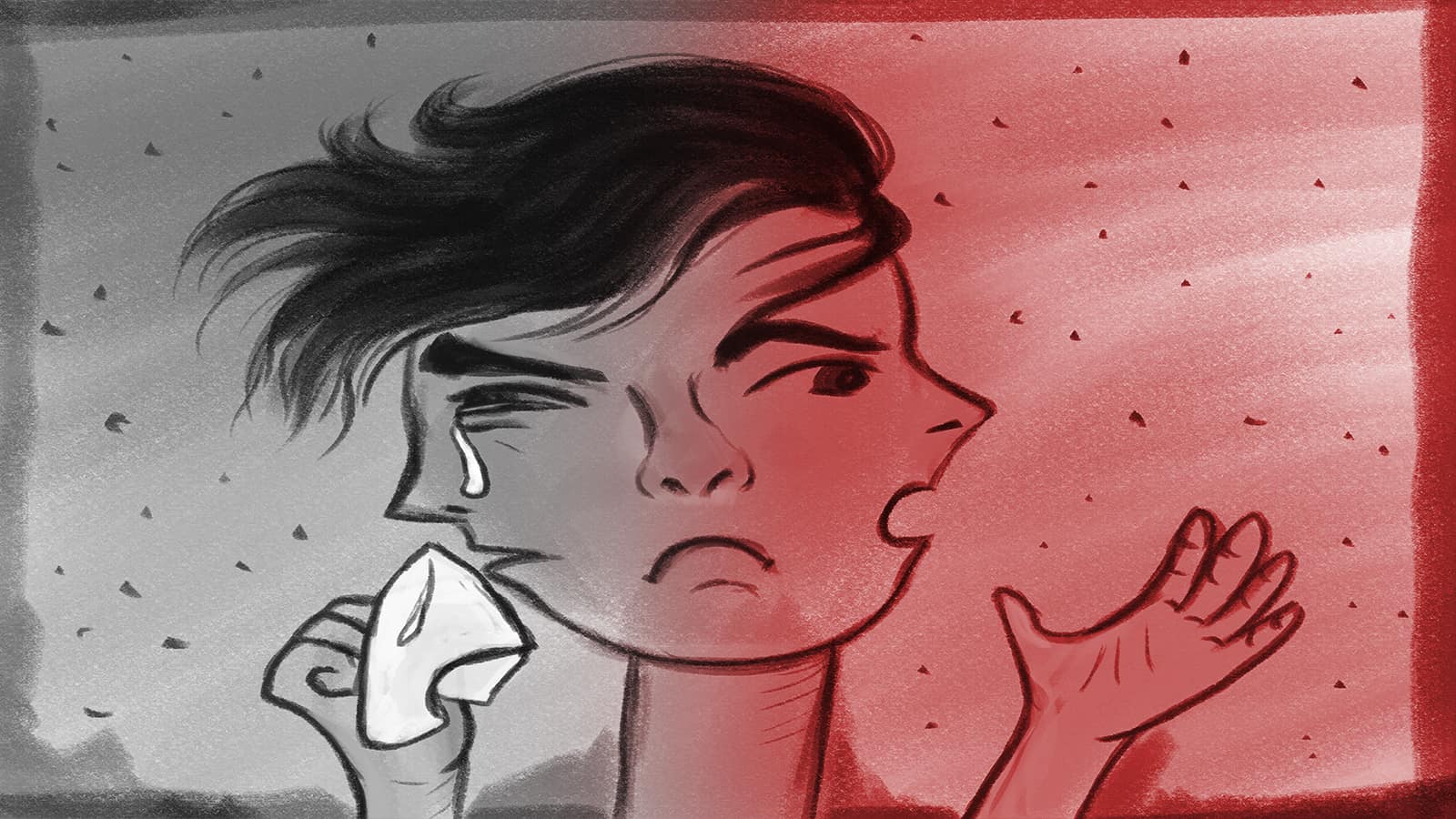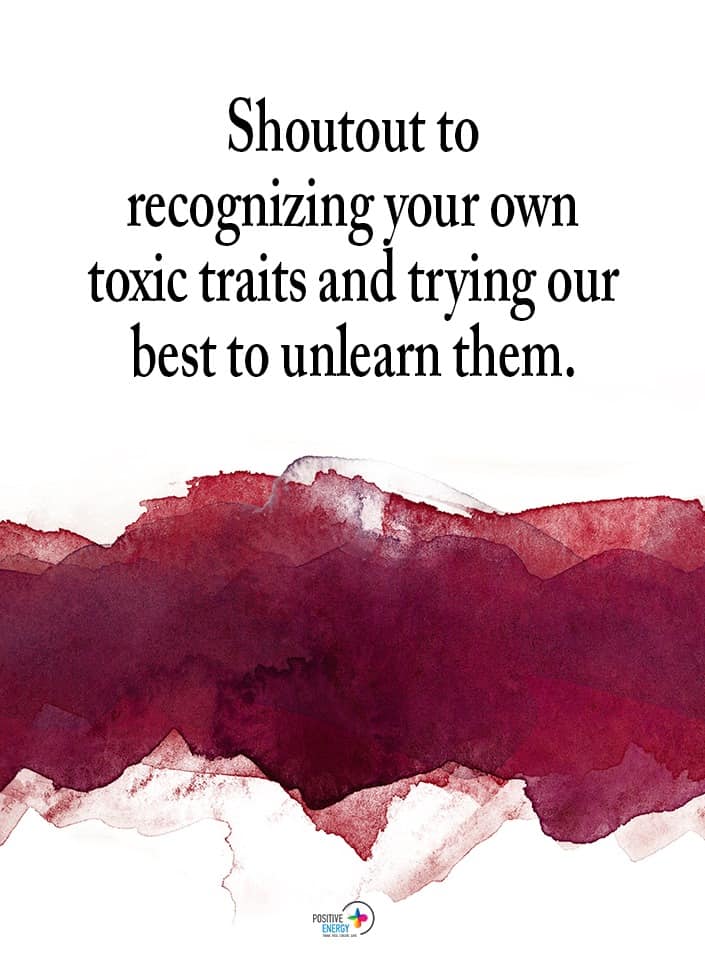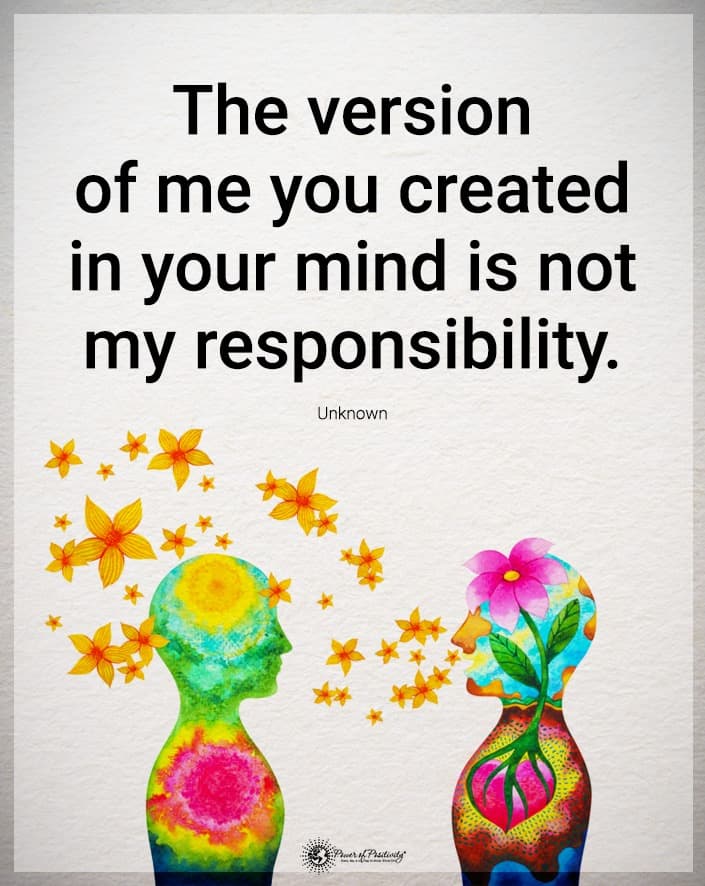We all know people with toxic traits. It’s easy to avoid the worst of it all and not take it to heart when you know someone’s behavior is harmful. But what happens when you can’t be positive that someone is toxic?
Many unacceptable actions have become normalized and acceptable in our society, even though they’re very harmful. Indeed, you may have some of them, or know people who do. Here are five toxic behaviors that are considered regular but aren’t.
1. Always Seeking The Spotlight
The spotlight takes turns shining on different people. That’s simply how life is. Not everyone gets to be under the glare of the world’s eye all the time, and even people like celebrities go in and out of the limelight.
Constantly wanting the spotlight is a sign of toxic behavior. Some people laugh it off, and it’s even played like a quirky personality trait. But it can be very negative to the people who have to deal with it. Here are some examples of toxic traits in this vein:
· Demanding Attention
Every now and then, it’s okay to want to have attention, especially if you’ve done something significant or it’s a moment of success in your life. But constantly seeking attention with outlandish behavior, desiring any attention even if it’s negative, is toxic. Wanting always to be the center of attention is like demanding that the world revolves around you. And that’s not how it works.
· Pleasing Others Excessively
It’s normal and natural to want to please some people. No one – typically – wants to cause a stir by going against what a majority seems to be on board with. That’s just human nature, and though it can be a little bad for you, it’s not inherently toxic. But constantly being a people-pleaser to ridiculous ends is toxic. Someone who bends over backward to do what everyone wants is harmful to others by making empty promises and following their insecurities’ whims. And, of course, they’re toxic to themselves by doing too much, relying on other people’s approval, and letting themselves get taken advantage of.
· Seeking Constant Validation
A little validation in life is lovely! Demanding it constantly, however, it’s exhausting to others and to the person who desires it. The reality is that if someone’s only source of validation is from external forces, they’re going to lose a lot of positive thinking when they’re not able to get it. True “validation” can be found from within, as intrinsic motivation helps to fulfill the self in genuine ways that other people can’t.
2. Constant Negativity
Everyone has bad moments where negativity consumes them, and some people are naturally more pessimistic without it hedging into toxicity. But constantly being overtly negative is very toxic and exhausting to deal with, dragging down everyone’s mood away from positive thinking. It seeps into everything and sucks the light out of situations, infecting others along the way. Here are some examples of toxic negativity:
· Complaining All The Time
Some things are worth complaining over, but there’s a limit to how much someone can complain before it becomes unproductive and a waste of time. Constant complaining is draining for everyone involved – both the complainer and those who have to listen to it. Worse still, complaining can be a toxic habit that’s very much ingrained and is difficult to break.
· Always Pointing Out The Bad
All things come with pros and cons. In some situations, the cons outweigh the pros, and it’s hard not to the point that out. But if someone only ever points out bad things, even when there are plenty of positive things to see, they’re toxic. Worse still, such a person may have no desire to improve the situation or listen to anything good said about it.
· Unwanted Criticism
A little constructive criticism, when asked for, is a good and fine thing. But too much of it is ridiculous, especially when it simply becomes an effort in finding fault in others. Someone’s perceived helpfulness in criticism often doesn’t come across well to the recipient, who leads an entire life with nuance and private matters that the critic isn’t aware of. No one wants to deal with a negative nancy who can’t stop giving negatively-toned advice to everyone.
3. High-and-Mighty Behavior
No one likes people who act like they’re above everyone else, but sometimes, it’s easy to dismiss this behavior. You may think someone is just a little cocky or a tiny bit too confident, not realizing that these behaviors are more toxic than they initially seem. Here are some examples of this:
· Selfishness
Being too self-focused means that someone is only out to look after themselves and are willing to do anything to achieve their means to the detriment of others. This pushes people away, and it’s not hard to see why it’s a toxic form of behavior.
· Arrogance
Some people think arrogance is acceptable, but it isn’t. Think about it: anyone who genuinely believes that they’re better than others is inherently questionable in morality. Though research indicates some arrogance is more easily accepted by people, that doesn’t make it any less toxic.
· Judgmental Attitude
No person has any right to judge others. All human beings experience life uniquely and see things from a personal point of view, so they automatically aren’t capable of knowing everything they need to know to pass any judgment. A toxic person will ignore this fact and act like they’re better than other people.
· Entitlement
Entitled people are a pain to deal with. These individuals don’t know the meaning of the word gratitude and think that they are entitled to everything in life. Do note that there is a significant difference between being aware that basic human rights should be met and entitled. Entitlement comes into play when someone thinks they are worthy of fortune, fame, luxury, or success.
4. Acts of Insincerity
Sometimes, we have to put on a bit of an act to get by at certain points in life. But being insincere is entirely different from putting on a brave face or choosing not to share something with someone. It means behaving in an untrue manner and promoting these falsehoods to the point where no one knows the truth anymore. It’s a very toxic way to behave.
For some, insincerity can be in the form of pretending to be someone you’re not, but that’s widely recognized as toxic behavior. The more insidious forms of hypocrisy involve things that people may not be able to discern are negative right away. Here are some examples of this:
· Passive Aggression
A lot of people dislike conflict and will do what they can to avoid direct blowups and confrontation. But that opens the door for toxic traits, like passive aggression. This involves the use of low-blows, criticism, and retorts that are disguised and delivered indirectly. Everyone can tell something’s off about them, but it can’t be directly proven since the act was passive. This is very toxic; if you have a problem with someone, you should communicate it directly!
· Gossiping
Gossiping a little isn’t necessarily bad. But an obsession with talking about others behind their back, whispering little half-truths, and then showing an innocent face to those you just insulted… well, it’s easy to see why that’s toxic! And yet, it’s considered a normal part of social interaction, even though it shouldn’t be. There is no point in gossip, and it helps no one.
· Being Absent When Loved Ones Are In Need
Yes, no one should have to play therapist to their loved ones, but there’s a general understanding that you will try to be there for them when they need an ear and a shoulder when you care about someone. A toxic individual may intentionally make themselves scarce when their loved ones are trying times, distancing themselves, so they don’t need to perform any emotional labor. Of course, these same people will then expect their loved ones to be there for them when they want them to be.
5. Refusing Responsibility
As adults, responsibility is something that is a given. Every individual is responsible for their actions and how those actions may negatively impact others (though, of course, the latter applies within reason). Anyone who avoids or refuses the responsibility that they should have is exhibiting toxic behavior. Here are some examples:
· Blaming Others For Personal Problems
Many things in life aren’t going to go the way people want them to, and it’s okay to feel upset by that notion. But problems begin to arise when blame begins to get passed around for them. Sometimes, things don’t work out, but a toxic person will find a way to blame circumstances on other people, refusing even to acknowledge any part they played in the debacle.
· Playing The Victim
A widespread toxic trait is becoming defensive and playing a victim when called out on negative behavior. Someone like this may spin a sob story, pass blame around, or create imagined persecution against them, all, so they don’t have to take responsibility for their actions.
· Refusal To Apologise Properly
Genuine apologies require sincerity, a proper understanding of the wrong done or harm caused. You must commit to either ceasing the adverse action or finding a compromise for it. But lots of toxic people instead refuse to apologize, or they add disclaimers to their apologies. For example, a toxic person may say, “I’m sorry that you feel that way,” putting the responsibility on someone else.
· Holding Grudges
If someone wrongs you, it’s reasonable to feel upset and hurt and to even cut the wrongdoer out of one’s life. But holding a grudge for a prolonged period over these issues often do more harm than good. Studies have shown that the act of forgiveness is far more positive for stress and recovery, even if that forgiveness is found intrinsically and not conveyed to the wrongdoer. On the flipside, grudges bleed into other areas of life, creating a toxic set of traits that should have been left in the past.
Final Thoughts On Some Toxic Behaviors That Are Considered Normal, But Aren’t
Toxic behaviors are ones we should all try to leave behind. Whether they’re your own that you need to unlearn or the acts of others that you need to distance yourself from, being aware of commonly accepted toxic behaviors helps to protect you from them.

















 Community
Community

